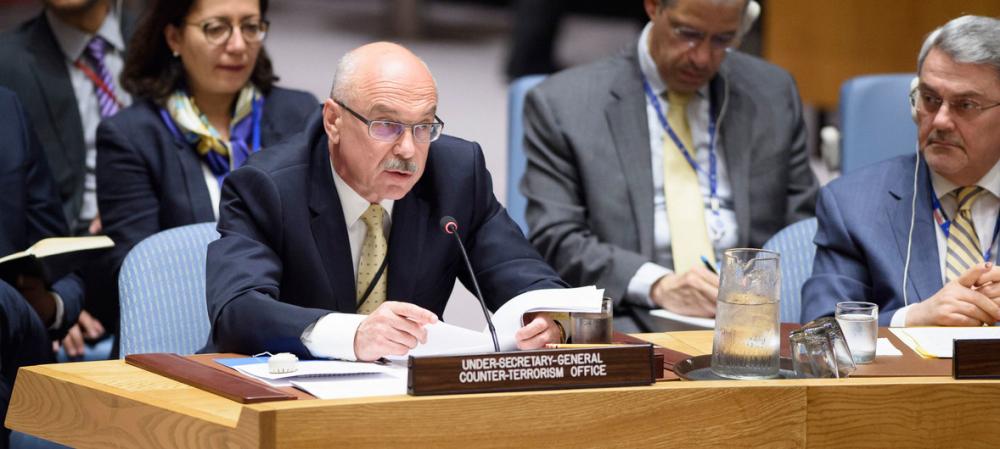Just Earth News | @indiablooms | 31 May 2018

New York: The low voter turnout for Iraq’s recent national elections was a “strong signal” to the country’s ruling political elites that they must work harder to ease sectarian divides and promote democratic accountability over nepotism and patronage, the United Nations envoy to the country said on Wednesday.
Briefing the Security Council, Ján Kubiš, the top UN official in Iraq, urged the country’s political leaders “to draw the necessary conclusions” from the fact that less than half the country’s people exercised their right to vote “on the need for improved representation, justice for all and good governance.”
In forming the new government, the leaders must ensure full participation of women, both in political negotiations, as well as at the highest level of decision making in the country, added Kubiš.
Political leaders, he said, should also build upon the achievements of the current Government, prioritise inclusive, non-sectarian dialogue, and ensure the swift formation of a new “truly national” government that reflects the will of the people of Iraq.
The envoy, who heads up the UN Assistance Mission for Iraq (UNAMI), also noted reports of irregularities at various locations and called on independent electoral management bodies to adjudicate all appeals properly, fully and in time, to enable corrections of the problems, justice and the timely certification of the final election results.“It is essential that the new government works as one across the sectarian and ethnic divides in pursuing much needed political, economic and social reforms, based on the principles of patriotism and citizenship with equal rights, justice and opportunity for all and good governance while working to improve the economy, public services delivery and social justice.”
Looking beyond the political situation, Kubiš told the 15-member Council that the humanitarian crisis persists across Iraq, with over 2.1 million people displaced but severely limited resources to provide aid or implement demining programmes.
“Out of the required $569 million in the Humanitarian Response Plan, only $101 million in donor contributions, or 18 per cent was received as of 15 May,” he said, urging the international community to step up their efforts to support vulnerable populations.
Iraqi-owned and driven reconciliation and reconstruction essential to prevent resurgence of violent extremism
Also briefing the Security Council today, Vladimir Voronkov, the head of the UN Counter-Terrorism Office, urged continued determination of the Iraqi Government to consolidate the military victory against the Islamic State of Iraq and the Levant (ISIL/Da’esh) through an approach that is focused on both prevention and strengthening resilience.
Recalling a mission to Iraq by his Office together with the UN Counter-Terrorism Executive Directorate (CTED), Mr. Voronkov said that all interlocutors stressed the country’s continued commitment to fighting terrorism as it transitions from a military-focused counter-terrorism approach to a more comprehensive one, which includes prevention, law enforcement and criminal justice components.
“It was the conclusion of our Iraqi interlocutors that national reconciliation and reconstruction, owned and driven by the Iraqi people, are essential to prevent the resurgence of violent extremism and terrorism in Iraq,” he said.
Michèle Coninsx, Assistant Secretary‑General and Executive Director of the Counter‑Terrorism Committee Executive Directorate, outlined efforts taken to combat Iraq’s terrorist threat through non‑military means since 2015.
The Directorate identified 33 key recommendations on ways to strengthen its overall response, she said, spotlighting the need for technical assistance in such priority areas as legal and judicial matters, countering financing of terrorism, law enforcement and border control and countering radicalization and incitement to commit terrorist acts.
“Subsequently years, the Directorate and its partners held follow‑up meetings and visits to Iraq to ensure that discussions at Headquarters continued to reflect the situation on the ground.” She explained.
UN Photo/Loey Felipe